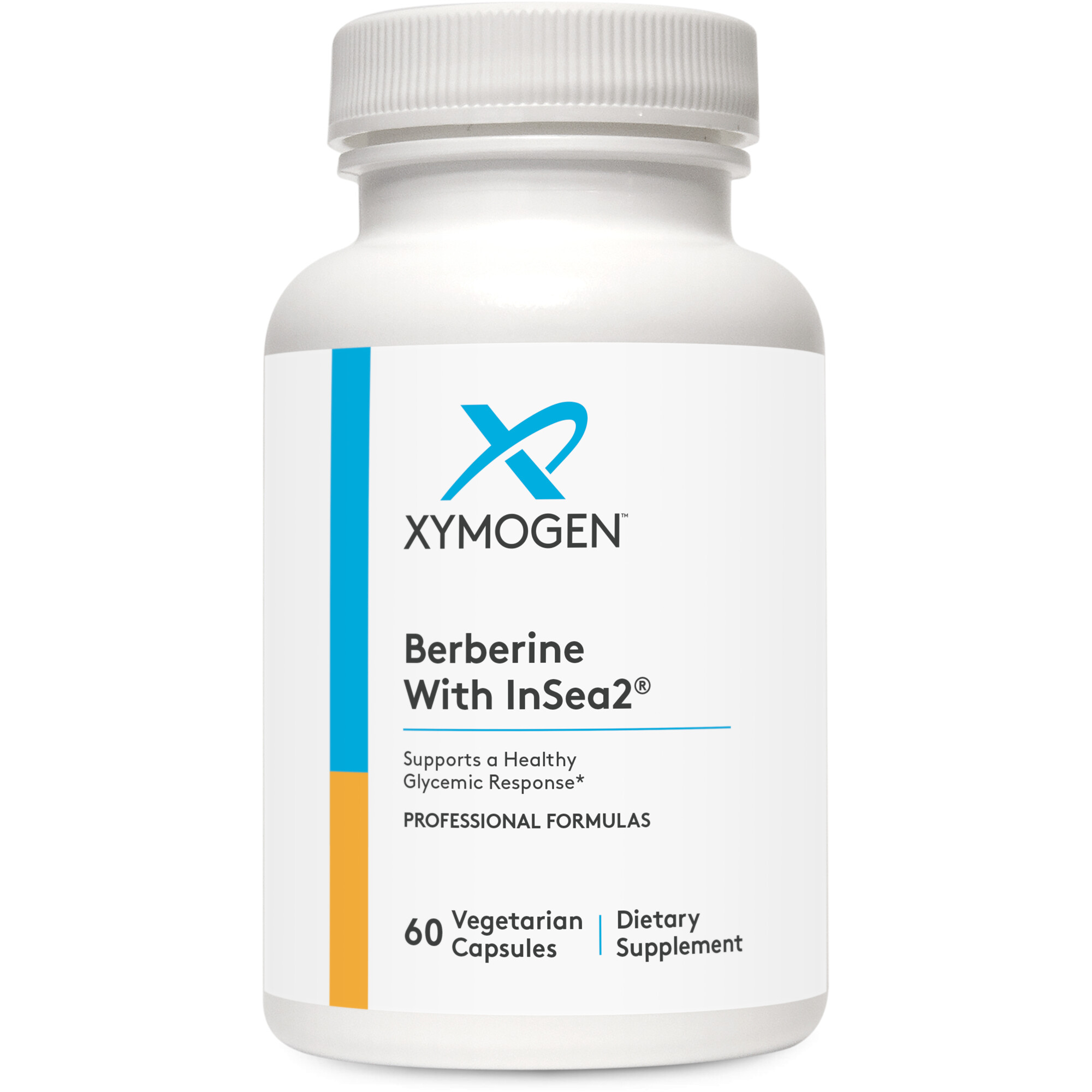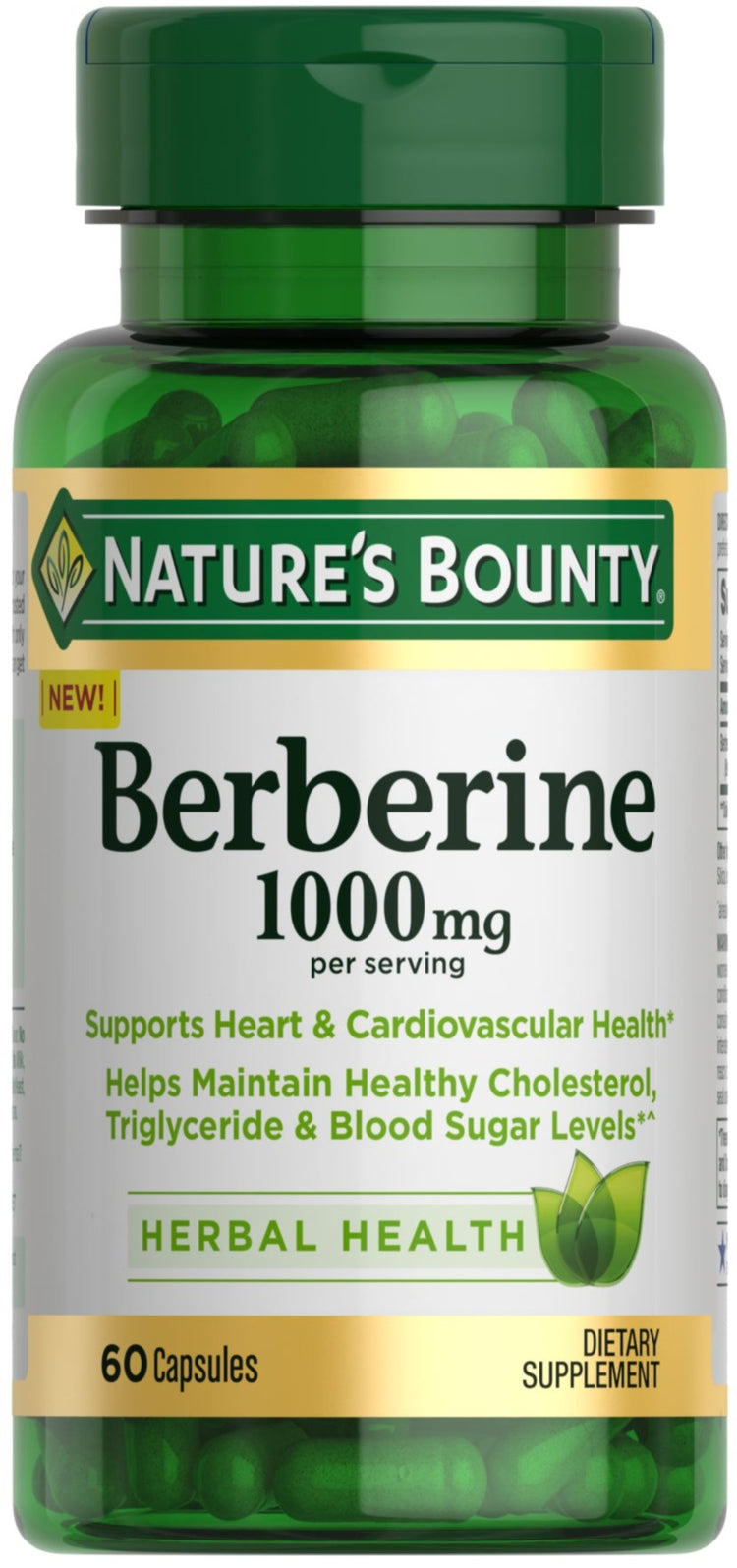Imagine unlocking a natural way to boost your health and well-being. That’s exactly what Berberine supplements offer.
If you’ve ever found yourself searching for an effective solution to support your body’s functions, Berberine might be your answer. This powerful compound, derived from plants, has been used for centuries in traditional medicine. But what makes it so special for you today?
Whether you’re looking to manage blood sugar levels, improve heart health, or enhance your gut microbiome, Berberine could hold the key. Dive into this article to discover how Berberine supplements can potentially transform your health routine and why they might be the missing piece in your wellness puzzle. Let’s explore how this ancient remedy fits into your modern lifestyle.
What Is Berberine?
Berberine is a natural compound with ancient roots. It has been used for centuries in traditional medicine. Found in several plants, berberine is known for its bright yellow color. This alkaloid has gained popularity for its potential health benefits.
Berberine is an alkaloid extracted from various plants. Among these are goldenseal and barberry. Its vibrant yellow color is distinctive. This compound has been part of traditional medicinal practices. Chinese and Ayurvedic medicines have long utilized berberine. It has been associated with various health benefits. These include supporting heart health and regulating blood sugar levels.
How Does Berberine Work?
Berberine acts on the body at the cellular level. It affects enzymes and proteins involved in metabolism. This can influence how cells use energy. Berberine is known to activate an enzyme called AMP-activated protein kinase (AMPK). AMPK plays a role in regulating metabolism. It may help improve insulin sensitivity and lower blood sugar.
Berberine is found in several plants. Goldenseal, barberry, and Oregon grape are common sources. These plants have been used in herbal remedies. Berberine is extracted from the roots, stems, and bark. Supplements often contain concentrated forms of berberine.
Potential Health Benefits Of Berberine
Berberine may support heart health. It can help reduce cholesterol levels. Blood sugar regulation is another potential benefit. Berberine might improve insulin sensitivity. This can be helpful for those with type 2 diabetes. Some studies suggest it may aid in weight loss. Its effects on metabolism could contribute to this. Berberine is also noted for its anti-inflammatory properties.
Sources Of Berberine
Berberine, a natural compound, is found in plants like goldenseal and barberry. This supplement often comes from these sources. Known for potential health benefits, Berberine is popular in herbal medicine.
Understanding the sources of berberine is crucial if you’re considering adding this supplement to your routine. Berberine is a compound that has gained popularity due to its potential health benefits, including blood sugar regulation and improved gut health. But where does this powerful compound come from? Let’s dive into the natural sources and supplement forms of berberine to help you make an informed decision.
Natural Sources
Berberine is naturally found in several plants, primarily in their roots, rhizomes, stems, and bark. Some of the most common plants include Barberry, Goldenseal, and Oregon Grape.
If you’ve ever taken a walk through a forest and stumbled upon a barberry bush, you’ve encountered one of the richest natural sources of berberine. These shrubs are not only valued for their vibrant red berries but also for their medicinal properties.
Goldenseal, often used in herbal remedies, is another plant you might recognize. It’s typically used for its antimicrobial properties and is a staple in many natural health stores.
Do you enjoy hiking? Keep an eye out for the Oregon Grape. Its deep yellow roots are a testament to its high berberine content. These natural sources are not only fascinating but also potent.
Supplement Forms
While it’s intriguing to find berberine in nature, not everyone has the time or ability to harvest these plants. That’s where berberine supplements come in handy.
Berberine supplements are available in various forms, including capsules, powders, and tinctures. Capsules are the most popular, offering convenience and precise dosing.
Have you ever tried a berberine tincture? They are typically more potent and can be easily added to your daily routine. Just a few drops under your tongue can provide the benefits you seek.
When choosing a supplement, consider what form fits best into your lifestyle. Are you someone who values ease and simplicity? Capsules might be your best bet. Want something more versatile? A tincture could be the answer.
By understanding both the natural sources and supplement forms, you can make a well-informed choice that suits your needs. Have you considered which form of berberine would work best for you?
Health Benefits
Berberine supplements may help control blood sugar levels and support heart health. This natural compound is derived from plants and has been used in traditional medicine. Many people find it beneficial for weight management and improving metabolism.
Berberine is a powerful supplement known for its health benefits. Derived from various plants, it has been used in traditional medicine for centuries. Modern research supports its numerous advantages, making it popular among those seeking natural remedies. Below, we explore the key health benefits of berberine.
Blood Sugar Regulation
Berberine helps maintain healthy blood sugar levels. Studies show it improves insulin sensitivity. It supports glucose metabolism efficiently. This can be beneficial for individuals with type 2 diabetes. Regular intake may reduce fasting blood sugar levels. It also aids in lowering HbA1c, a marker of long-term glucose control.
Cholesterol Management
Berberine contributes to better cholesterol profiles. It lowers LDL, the “bad” cholesterol. It raises HDL, the “good” cholesterol. This helps reduce the risk of heart disease. Berberine also decreases triglycerides. Combined, these effects promote heart health.
Weight Loss Support
Berberine aids in weight management. It boosts metabolism, enhancing fat burning. It also suppresses fat cell growth. Research indicates it can lead to reduced body mass index (BMI). This is particularly helpful for those struggling with obesity.
Anti-inflammatory Effects
Berberine has strong anti-inflammatory properties. It reduces inflammation markers in the body. Chronic inflammation is linked to various diseases. By reducing inflammation, berberine supports overall health. It may alleviate symptoms of inflammatory conditions.
Heart Health
Berberine significantly supports heart health. It improves heart muscle function. It enhances blood flow and reduces arterial stiffness. This can lower the risk of heart attacks. Regular use may improve overall cardiovascular health. Studies highlight its potential in managing heart-related conditions.

Credit: www.amazon.com
Mechanisms Of Action
Berberine supplements work by activating enzymes that help regulate metabolism. They can lower blood sugar levels and improve heart health. This supplement also has anti-inflammatory and antioxidant effects, promoting overall well-being.
Understanding the mechanisms of action of berberine supplements can enhance your appreciation for this natural compound. Berberine, a bioactive substance extracted from several plants, is renowned for its potential health benefits. But how does it work in your body? Let’s dive into the science behind it and see how it influences different biological processes.
Ampk Activation
Berberine is known for activating an enzyme called AMP-activated protein kinase (AMPK). Think of AMPK as your body’s energy regulator. When AMPK is activated, it helps to improve energy balance and increase metabolism.
This can be especially beneficial if you’re looking to manage your weight or enhance your energy levels. By activating AMPK, berberine can help your cells take in more glucose, which may support better blood sugar control. Have you ever felt a spike in energy after a workout? That’s AMPK at work, and berberine might offer a similar boost.
Gut Microbiota Modulation
Another fascinating aspect of berberine is its effect on gut microbiota. Your gut is home to trillions of bacteria that play a crucial role in digestion and overall health. Berberine can help balance these bacteria, promoting a healthier gut environment.
By modulating your gut microbiota, berberine may support digestive health and even improve mood and immune function. Have you ever noticed how your gut feeling can affect your mood? A balanced gut can lead to a more balanced you. Consider how a simple supplement could potentially enhance your gut health.
Understanding these mechanisms might make you see berberine not just as a supplement, but as a potential ally in supporting your health journey. How might berberine fit into your wellness routine?
Dosage And Usage
Berberine supplements should be taken with meals, usually 500 mg two to three times daily. Consult a healthcare provider for personalized advice. Always monitor for side effects like digestive discomfort.
Berberine supplements have gained popularity for their potential health benefits, including blood sugar regulation and cholesterol management. But how do you make the most of this supplement in your daily routine? Understanding the dosage and usage is crucial to harness its full potential. Let’s dive into the specifics and ensure you’re using berberine effectively.
Recommended Dosage
The right dosage of berberine can make all the difference. Most experts suggest starting with 500 milligrams taken two to three times a day.
This amount is generally safe for adults and aligns with research-backed recommendations.
Remember, it’s always wise to consult with a healthcare provider before starting any new supplement to tailor the dosage to your individual needs.
Timing And Frequency
Timing matters when it comes to berberine. Taking it before meals can enhance its effectiveness in managing blood sugar levels.
Consider spreading your doses evenly throughout the day to maintain consistent levels in your bloodstream.
Have you ever wondered why some people don’t see results with supplements? It might be due to inconsistent usage. Regularity is key.
Using berberine correctly can be a simple addition to your wellness routine. Just like setting a daily alarm, aligning your supplement intake with your meals could lead to better results.
As you explore how berberine fits into your life, think about your lifestyle. Are you taking it at the right times, or could a small adjustment bring more benefits?
Ultimately, the key is to personalize your approach. With a bit of attention to timing and dosage, you can maximize the impact of berberine on your health journey.
Potential Side Effects
Berberine supplements may cause digestive issues like diarrhea or constipation. Some users report headaches or dizziness. Always consult a healthcare provider before starting.
Berberine supplements are popular for their health benefits. But it’s important to know potential side effects. Understanding these can help you make informed decisions. Let’s explore common side effects and precautions.
Common Side Effects
Berberine is usually safe for most people. Some may experience mild issues. Digestive discomfort is common. This includes bloating or gas. Diarrhea may occur in some cases. These are often temporary. They may lessen as your body adjusts.
Headaches might happen. They are generally mild. Some users report dizziness. This is rare but possible. If you feel light-headed, consult a doctor. Fatigue can also be a side effect. If tiredness persists, it may need attention.
Precautions And Warnings
Pregnant women should avoid berberine. It may affect fetal development. Nursing mothers should consult a healthcare provider. Berberine can interact with medications. Those on blood thinners need caution. It could enhance their effects.
People with low blood pressure should be careful. Berberine might lower blood pressure further. Those with diabetes need monitoring. It can affect blood sugar levels. Always check with a doctor before starting.
Interactions With Medications
Berberine supplements may interact with certain medications, affecting their effectiveness. Caution is advised if taking blood sugar or blood pressure medications. Always consult a healthcare professional before combining supplements with prescriptions.
Berberine supplements have gained popularity for their potential health benefits. Yet, they may interact with certain medications. This section explores key interactions you should know. Understanding these interactions ensures safe and effective use of berberine.
Drugs To Watch Out For
Some medications can interact with berberine. Blood sugar-lowering drugs are one example. Berberine can enhance their effects. This may lead to dangerously low blood sugar levels. Antibiotics like macrolides also interact. They can increase berberine’s concentration in the body. This could cause side effects. Blood thinners like warfarin are another concern. Berberine may alter their effectiveness. This can affect blood clotting. It’s crucial to monitor these interactions.
Consulting With Healthcare Providers
Before starting berberine, talk to your doctor. They can help assess risks and benefits. Your doctor knows your medical history. They can identify potential drug interactions. Share all medications and supplements you take. This includes over-the-counter drugs. Your healthcare provider can provide personalized advice. They may adjust dosages if necessary. This ensures safe use of berberine alongside your medications.

Credit: www.xymogen.com
Choosing Quality Supplements
Exploring berberine supplements can boost your health journey. Known for its natural benefits, berberine supports healthy blood sugar levels. Choosing a high-quality berberine supplement ensures better absorption and effectiveness, promoting overall wellness. Always check the label for purity and third-party testing to ensure safety.
Choosing quality berberine supplements can feel overwhelming with so many options available. The right choice can make a significant difference in your health journey. Understanding how to evaluate supplements ensures you get the most effective product for your needs.
Reputable Brands
Selecting supplements from reputable brands is crucial. Look for companies with a history of quality and reliability. Brands that are transparent about their sourcing and manufacturing processes often have the best products.
I once spent hours researching different brands before settling on one with great reviews and a strong reputation. The difference in quality was noticeable. Does your chosen brand provide detailed information about their product?
Label Analysis
Reading labels might seem tedious, but it’s essential. Pay attention to the list of ingredients. A quality berberine supplement should contain minimal fillers and additives.
Check for certifications like GMP (Good Manufacturing Practices). These certifications indicate a commitment to quality and safety.
Compare the berberine concentration across different brands. Higher concentration often means more potency, but balance it with your dosage needs.
Do you understand what each ingredient does? This knowledge helps you avoid unnecessary additives that offer no benefit.
Future Research Directions
Exploring new research avenues for berberine supplements is crucial. Scientists aim to understand its potential health benefits and mechanisms. Investigating dosage, safety, and effects on chronic diseases remains essential. As interest grows, future studies could uncover more about this compound’s role in modern medicine.
As interest in natural health supplements continues to grow, the potential of berberine as a wellness aid is attracting significant attention. While current studies show promising benefits, future research directions could further unlock its mysteries and applications. Let’s take a closer look at what the future holds for berberine supplementation.
Emerging Studies
Recent studies have sparked curiosity about berberine’s role in managing blood sugar levels and supporting cardiovascular health. Research is increasingly focusing on its potential to enhance metabolic health, particularly in individuals with type 2 diabetes. One exciting area of study involves berberine’s ability to modulate gut microbiota, which could revolutionize how we approach digestive health.
Another emerging study investigates berberine’s anti-inflammatory properties. Scientists are exploring how these properties might help in conditions like arthritis. Imagine a world where a simple supplement could offer relief from chronic joint pain.
Areas For Further Investigation
Despite these promising findings, many questions remain unanswered. How does berberine interact with other medications, and what are the long-term effects of its use? Understanding these interactions is crucial for safely integrating berberine into daily health routines.
Researchers are also keen to explore berberine’s effects on mental health. Could it play a role in alleviating symptoms of anxiety and depression? As someone who has struggled with anxiety, the idea of a natural supplement offering support is both intriguing and hopeful.
Another area ripe for research is berberine’s impact on weight management. Can berberine aid in healthy weight loss, and if so, how effective is it compared to other methods? Your curiosity might lead you to experiment with berberine, but what would science say about its efficacy?
In considering these future research directions, one can’t help but wonder about the untapped potential of berberine. As research progresses, will berberine become a staple in health-conscious households? With so many possibilities on the horizon, staying informed and open-minded will be key to understanding the full scope of berberine’s benefits.

Credit: naturesbounty.com
Frequently Asked Questions
What Is The Supplement Berberine Good For?
Berberine supports blood sugar regulation, cholesterol improvement, and weight management. It may enhance heart health and reduce inflammation. Some studies suggest its potential for gut health and antimicrobial properties. Always consult a healthcare provider before starting any supplement to ensure safety and effectiveness for individual needs.
Is There A Downside To Taking Berberine?
Berberine may cause digestive issues, nausea, or diarrhea. It can also interact with medications and lower blood sugar. Consulting a healthcare professional before use is advisable to avoid potential side effects and interactions.
Who Should Avoid Berberine?
Pregnant or breastfeeding women should avoid berberine. People with diabetes or low blood pressure must consult a doctor first. Those on medications like blood thinners or antibiotics should avoid it too. Always seek medical advice before use to ensure safety.
Is Berberine Just Turmeric?
Berberine is not turmeric. Berberine is a compound found in several plants like barberry. Turmeric contains curcumin, a different compound. Both have distinct properties and uses.
Conclusion
Berberine supplements can offer health benefits. They’re worth considering for better wellness. Supporting heart health and managing blood sugar are key advantages. Always consult a healthcare provider before starting any supplement. They can guide you on safe usage. Remember to choose high-quality products from trusted sources.
This ensures you’re getting the best. Supplements should complement a healthy lifestyle. They’re not a substitute for balanced nutrition and exercise. Staying informed helps you make the right decisions. Embrace a holistic approach for optimal health. Your journey to wellness is personal and valuable.



